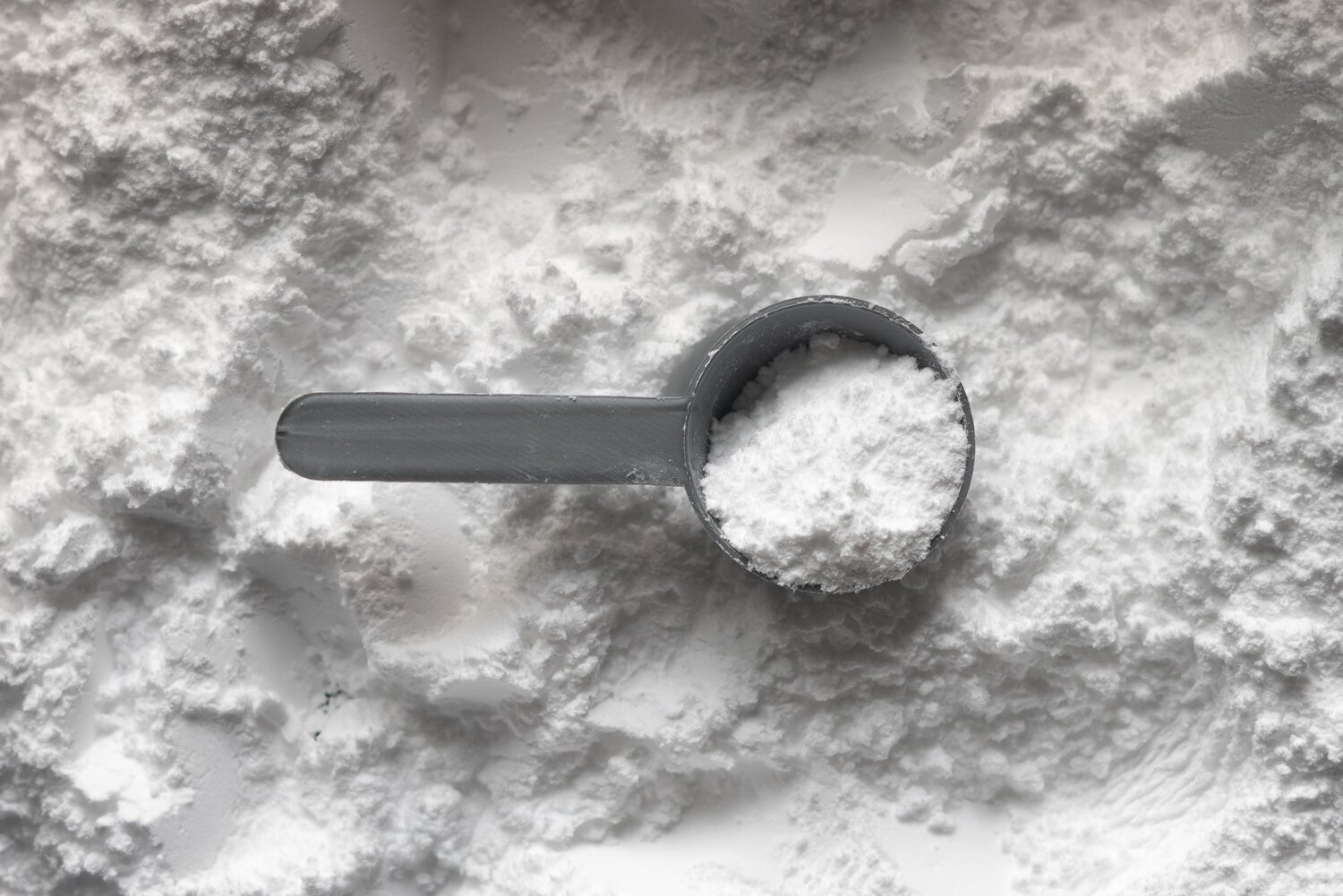Are you an athlete interested in taking creatine to boost your performance, but aren’t sure where to start? For example, you may be wondering when to take creatine for best results, if you should take creatine before or after workout sessions, and how much creatine per day you should take.
Many of my athlete clients ask me about creatine and if they should add it to their workout plan.
Let’s unpack the most common questions you may have so you can learn how to take creatine for the best results.
What is Creatine?
Creatine is a natural compound that plays an important role in cellular energy production. Because of this, many athletes are curious about the benefits of taking creatine supplements as an ergogenic aid to enhance performance.
Our bodies naturally produce creatine, but it is also found in animal foods such as meat and fish. On average our body produces around 1-2 grams of creatine per day. It is synthesized by the body from two amino acids (protein-building blocks) glycine and methionine.
Creatine may enhance workout performance and support energy during intense workouts. It may be especially helpful for shorter, more intense workout sessions such as sprinting and weight lifting.
Even though creatine is found in a few foods, you need to eat a good amount of them to meet daily creatine recommendations for optimal performance. Additionally, if you are a vegetarian or follow a vegan diet then it is suggested to take creatine in supplement form.
How Does Creatine Work?
Creatine works by supporting the production of ATPor adenosine triphosphate, one of the primary drivers of energy production. If your ATP stores are depleted, chances are you are hitting a wall or struggling to maintain workout performance.
When creatine is present in adequate amounts, your ATP stores are able to be replenished.
When you consume creatine, you are increasing the stores of creatine within your muscles anywhere from 10-40%, allowing your body to work at a higher intensity for a longer.
Research has shown supplementing with creatine can increase overall performance and enable greater training adaptations. This can support your ability to withstand more challenging workouts.
How to Take Creatine For Performance
One of the best ways to quickly increase your creatine stores (also known as phosphocreatine) is by taking a creatine supplement.
This supplement allows your body to work at a higher intensity for longer supporting maximum performance during intervals, sprints, and those especially heavy weight lifting sessions.
Creatine monohydrate is proven to be the most effective form of creatine supplementation, and the most affordable.
When To Take Creatine For Best Results
Just like your pre and post-workout nutrition, timing matters for when you take supplements. Consuming a dose of creatine right before or after workout sessions is suggested, or as close in proximity to your workout as possible.
On the contrary, taking creatine too far away from your workout time is thought to reduce the effectiveness of this supplement.
Loading phases – when an individual takes a high dose for a period of time followed by a lesser/recommended amount (or maintenance phase). A loading phase typically involves taking 20 grams per day for a period of time, then taking a normal amount (3-5 grams).
But, a loading phase isn’t always necessary. You may be able to get the same benefit by taking a consistent dose every day right around your workout time.
How Much Creatine Should I Take?
The recommended dose is 3-5 grams per day of creatine monohydrate. It is typically taken in either a powder or pill form, depending on your preference. You may prefer the convenience of a pill, but a powder form can also be easily mixed with water and helps you stay on top of your hydration.
If you don’t eat a large amount of animal proteins or are a vegetarian, it can be challenging to meet the recommended 3-5 grams per day of creatine. If you decide to try a creatine supplement, make sure it is third-party approved such as NSF certified for Sport or Informed Sport.
As a sports dietitian, I work with active individuals and athletes to help them optimize their nutrition and physical performance. This may often involve a combination of personalized diet, exercise, and supplement recommendations to help you feel your best and achieve your fitness goals.
Meet with a registered dietitian to receive a personalized nutrition plan and supplement protocol to help you meet your goals.
.
.
.
#Creatine #Athletes #Guide #Eleat #Sports #Nutrition
Source link








